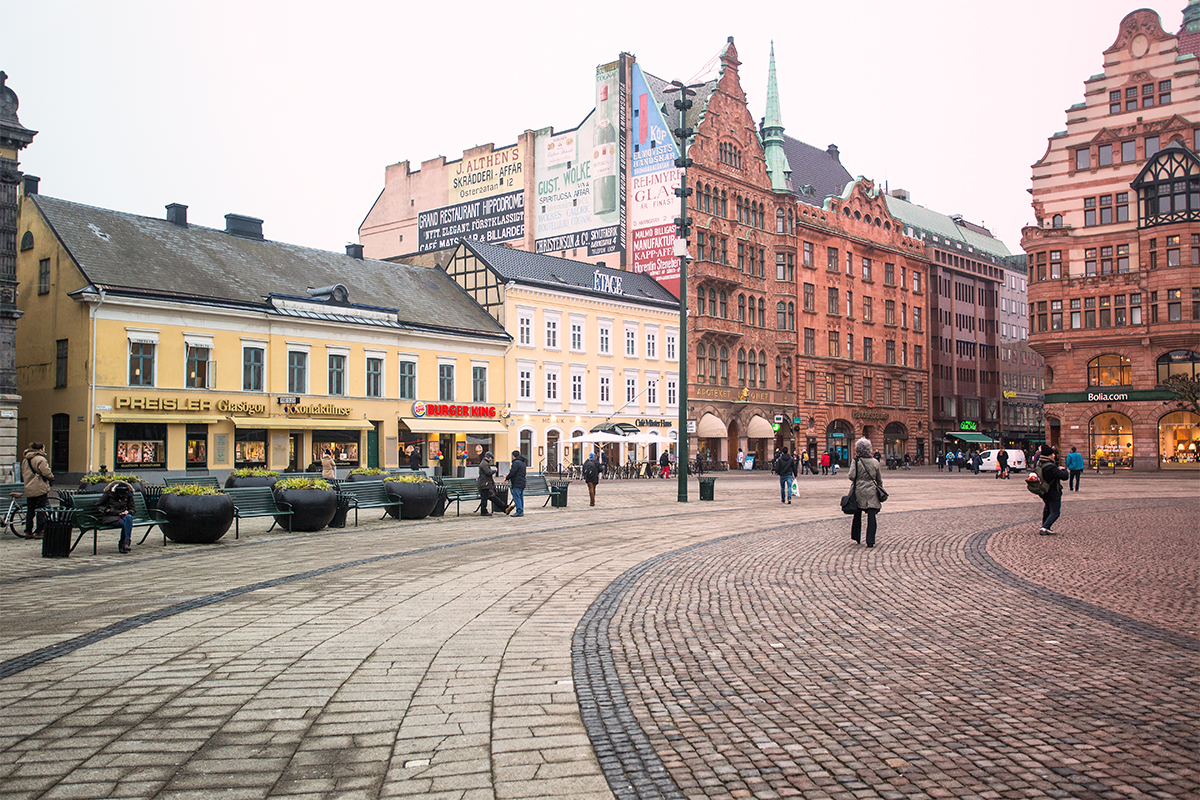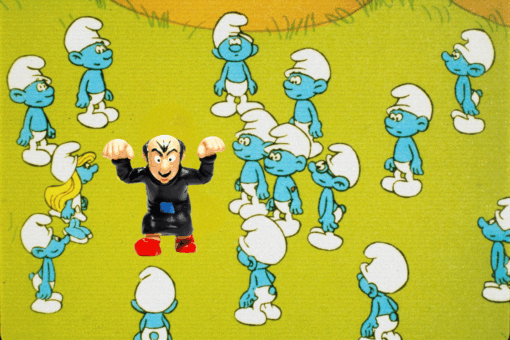Jewishness, like many identities, is mutable. It warps and unfolds across time, culture, and place. My Russian and Austrian Jewish ancestors once fled pogroms and anti-Semitic violence in 19th century Europe. When they arrived in New York, they helped cultivate the rich Jewish American diasporic community that myself and my family would find sanctuary in generations later.
Now, I have retraced their steps to Europe, though I find myself not in Russia but in Sweden, where I have spent the past two years studying. It is also here that the contours of my otherwise comfortable Jewishness became, for the first time, awkwardly defined against my surroundings. Being an American Jew in Northern Europe is like trying to squeeze into a sweater that shrunk in the wash.
My hometown of Berkeley, California has the fourth-largest Jewish-populated city in the U.S. There, I had the privilege of being surrounded by Jewish life: My identity and traditions were accepted throughout my broader community, and in this way, my identity never really came into question, was not systematically accentuated, and it was certainly not seen as an anomaly. But as I adjusted to my new life in Sweden, my Jewishness, once a colorful and complex mosaic enveloping me, soon felt plastered-over by the gritty historical backdrop of European Jewish history. In turn, my identity feels diluted in Sweden, where Jewishness looks and feels very different than it does in the U.S.
Like in the United States, the history of Jews and Jewish diaspora in Sweden is a short one. However, Jewish life appears to be far more sparse and understated in Sweden than in the States. This is partially due to the fact that Sweden has historically been a highly ethnically homogeneous society with a cultural emphasis on integration and group homogeneity.
In the past three decades, however, Sweden has become increasingly diverse, with 15% of the Swedish population being of non-Swedish ethnic heritage. Jews have been in Sweden since the 17th century, and today Sweden has the largest Jewish community in Scandinavia (though this isn’t saying much… Jews comprise only .02-.03 percent of Sweden’s population).
While maintaining a position of “neutrality” during WWII, Sweden managed to rescue as many as 10,000 Jews with the Red Cross “white buses” during the last weeks of the war, though most of these refugees later migrated to other countries. This narrative of Sweden as a last-minute savior of Jews is still enshrined within Swedish national identity (in my city of Malmö, which sits just across the water from Denmark, one of these white buses is currently displayed as a historical artifact in front of Malmö’s historic castle). While such feelings of national pride persist in historical narratives, the actual complexity of living Jewish culture, at least to my American eye, remains relatively invisible in Sweden.
I didn’t expect Judaism to look the same in Sweden as it does in the U.S., but I was surprised by the lack of any visible signs of Jewish life here aside from the occasional synagogue or graveyard (for instance, I haven’t found a half-sour pickle in nearly a year).
When I first came to Sweden, I would only hesitantly reveal my Jewishness, unsure of the degree of anti-Semitism present in the country. I even neurotically changed my last name — an incomprehensible Yiddish garble of s’s, h’s, and c’s — on Facebook, replacing it with my mother’s non-Jewish maiden name. Having always been self-conscious of my family name, I feared I would be denied housing or admittance to Swedish Facebook groups.
To my relief, most Swedes don’t really know what a “Jewish name” looks like (Islamaphobia and racism are far higher on the list of bigotry in Sweden these days). Despite my anxieties, which have certainly flared up in Europe, I am aware that I have the privilege of relative invisibility as a white Jew. Nonetheless, the stories that are told (and aren’t told) about Jews in Swedish cultural and historical discourses are ultimately imprinted onto me, often resulting in the oversimplification of my identity.
When my Jewishness initially came up in conversations with Swedes, I was met with pairs of wide eyes, as though they had seen a ghost of history’s past. Though Swedes have most often responded to this information with warm curiosity, I still nervously track the flitting surprise across the faces of acquaintances when they learn about my Jewish identity. Often I hear that I am the first Jew they have ever met, at least to their knowledge. And usually, they have no direct knowledge of Jewish culture itself, just its recent history in Europe. I have received comments and questions such as, “So why aren’t you wearing a headscarf?” and, “What is up with the Orthodox Jews?” and, “So are you pro-Israel?” and, “I would never have guessed you’re Jewish!” and, my personal creepy favorite, “I’d love to marry a good little Jewish girl like you.”
Such exchanges made me feel like a living fossil of an extinct species, rather than a living example of a still-existing diasporic culture. In the non-Jewish European cultural imagination, it seems Jews exist mostly as an echo of a mystical Biblical tribe or a tragic tall tale, petrified across Europe as a stone monument or memorial.
So how do we reanimate our identity as more than a political talking point or cultural imagination? Perhaps the first step is to answer these kinds of questions openly and proudly, knowing that, often, they come from a place of sincere curiosity.
Last week, I found out that an American acquaintance I know here also happens to be Jewish. Naturally, I was verklempt. We lamented our cravings for bagels and moaned about the almost comical anti-Semitic ignorance we’ve encountered living in Scandinavia (“You’re the first Jew I’ve met that I’ve actually liked!” a gleefully ignorant Dane once divulged to him). It was a huge comfort finding not only a fellow Jew, but a fellow culturally alienated, American Jew in Sweden.
It is difficult to shake those feelings of alienation as a Jewish person in certain spatial and cultural contexts. But Jewishness, whatever it might mean or look like for you, is also a home that we carry with us everywhere we go — usually we’ve had no choice but to do so. Now, my Jewishness is that home I always come back to in a foreign place. And in my home, everyone is welcome, even if they find it a little bit strange.
Header image of Malmö by Matthew Micah Wright/Getty Images.



